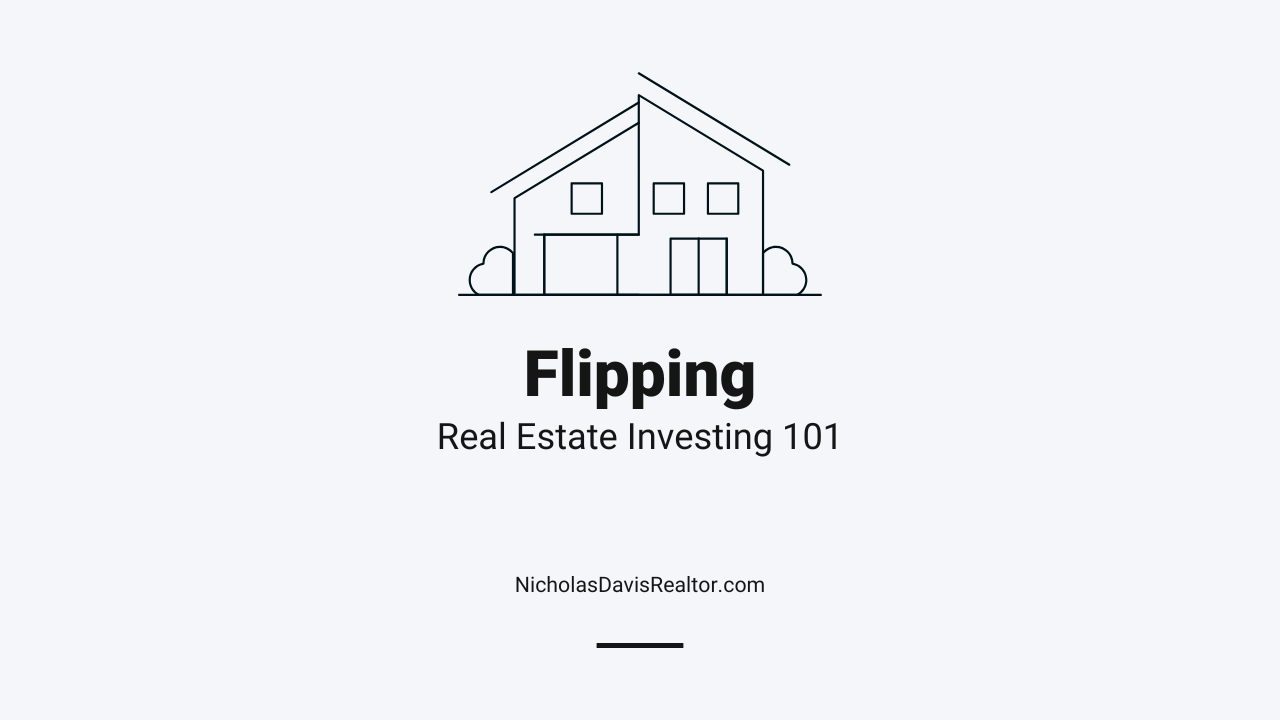Introduction
There’s something thrilling about turning the worst house on the block into a buyer’s dream—and walking away with a profit. That’s the essence of house flipping, one of real estate’s most talked-about (and misunderstood) strategies.
When done right, flipping can generate high returns in a matter of months. But it’s not HGTV magic—it’s a business. One that requires planning, precision, and a strong understanding of the market.
This guide walks you through what flipping really is, how to succeed, and what to watch out for.
What is House Flipping?
At its core, flipping is the process of buying a property at a low price, improving its condition or appeal, and reselling it for a profit—usually within a short time frame (3–12 months).
The most common flips are:
- Distressed properties that need renovation
- Undervalued homes in appreciating markets
- Off-market deals sourced through direct outreach or auctions
The profit lies in the spread between what you paid, what you spent on improvements, and what the market is willing to pay when you sell.
Why Investors Flip
1. Fast Capital Generation
Flipping is one of the quickest ways to grow your capital in real estate. One successful flip can generate $30K, $50K, or even more—money that can be reinvested into future deals.
2. Full Control
You control the renovation, the budget, and the timeline. This level of involvement lets you shape the project exactly how you want.
3. No Long-Term Commitment
Once the property is sold, you’re done. No tenants, no long-term maintenance, no ongoing management.
4. Market-Responsive Strategy
In hot markets, buyers are actively seeking move-in-ready homes, giving flippers a clear advantage—if the property is priced and presented right.
What It Takes to Succeed
1. A Solid Deal
Everything starts with the purchase price. Use the 70% Rule as a general guide:
Max Offer = (After Repair Value × 70%) − Repair Costs
This leaves room for profit, holding costs, and unexpected expenses.
2. Accurate Renovation Planning
The biggest risk in flipping is underestimating repair costs. Whether you’re updating kitchens and baths or doing a full gut rehab, you need:
- A reliable contractor
- A defined scope of work
- A timeline with built-in contingencies
3. Financing
Most flippers use one of the following options:
- Hard money loans (fast, short-term financing with higher interest)
- Private lenders
- Cash purchases (for experienced investors with reserves)
4. Exit Strategy
Know your market—and know how to sell. Partner with a strong real estate agent, stage the home well, and price it to sell fast. Holding a finished flip too long will eat into your profits.
Risks to Be Aware Of
- Market Shifts: A cooling market can lower resale value.
- Permitting Delays: City approvals can hold up construction.
- Contractor Issues: Poor craftsmanship or missed timelines can hurt your ROI.
- Hidden Repairs: Foundation issues, outdated wiring, or plumbing surprises can quickly blow your budget.
Flipping is not a guessing game. It’s a numbers game—and margins matter.
Who Flipping is For
- Hands-on investors who enjoy project management
- Those with access to quick capital or strong lending relationships
- People who thrive under pressure and tight timelines
- Experienced renovators or those working with a skilled, trustworthy team
Final Thoughts
Flipping houses isn’t just about renovating—it’s about value creation. You’re transforming overlooked properties into desirable homes and getting paid for your vision, speed, and execution.
If you have the drive, the numbers, and the right team, flipping can be one of the fastest ways to grow capital in real estate. Just don’t confuse quick with easy—this is a strategy that rewards preparation and punishes guesswork.
Flipping is for investors who want to build momentum. So if you’re ready to take action, start running the numbers—and get to work.




